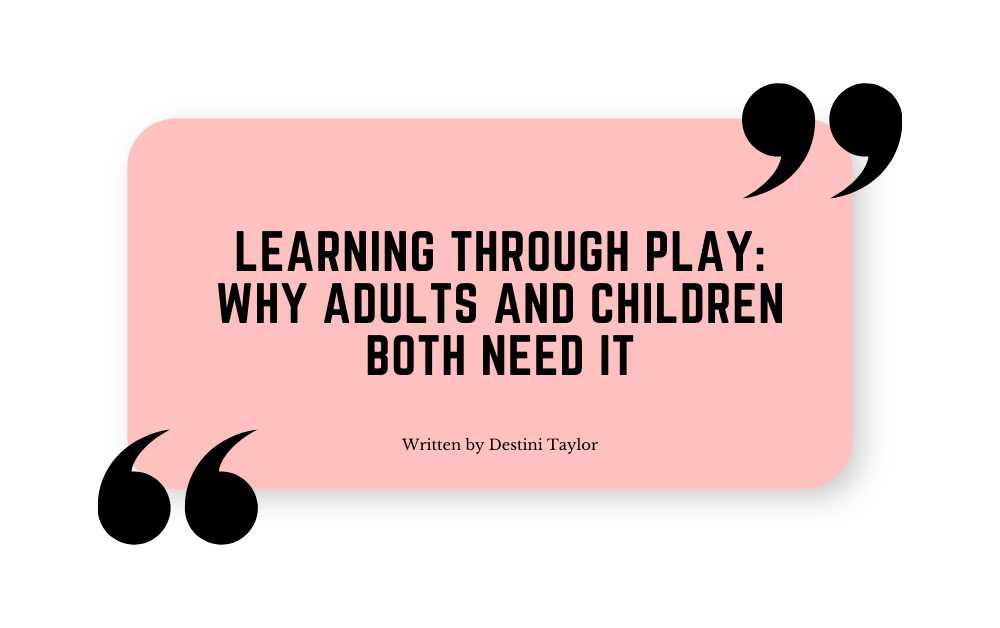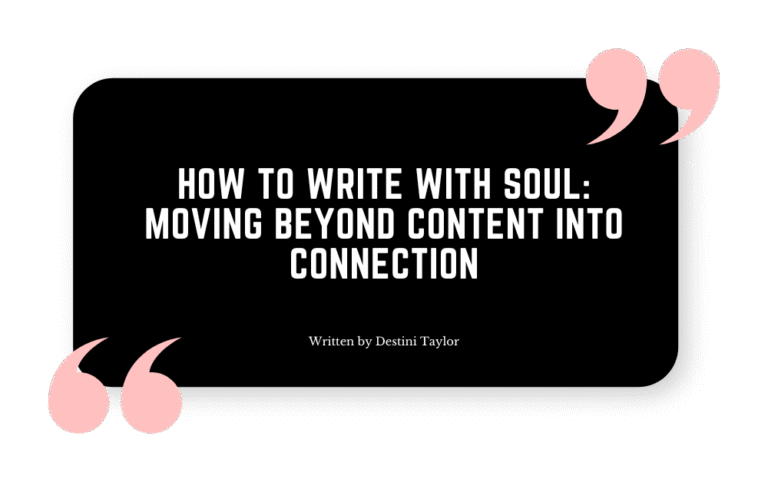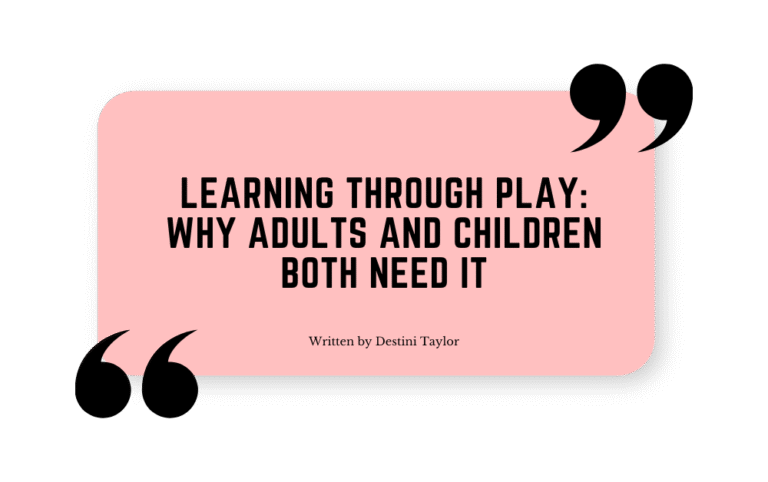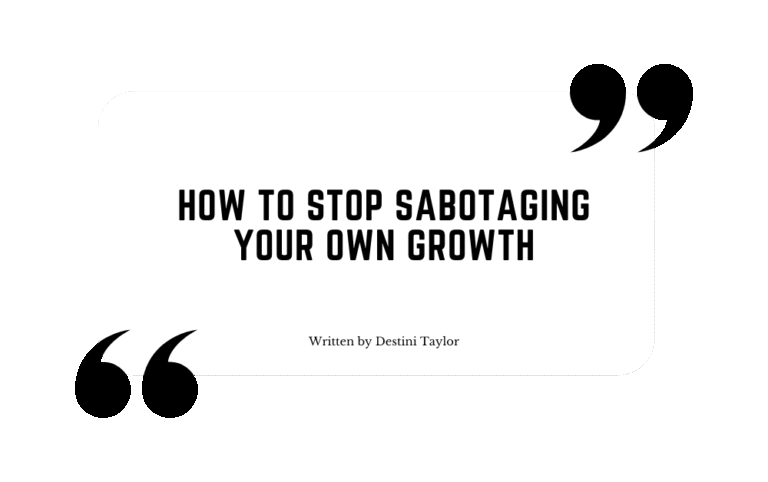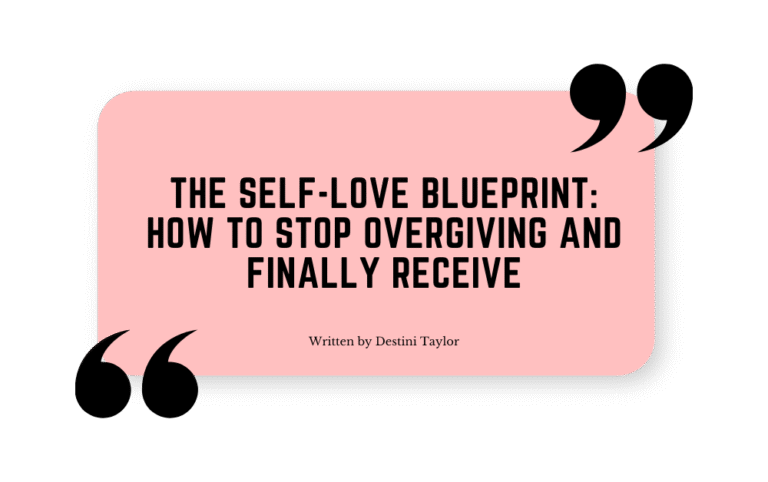The science and soul of play as a pathway to growth, creativity, and connection.
Why Play Is More Than Just Fun
Play is often dismissed as something children grow out of, a luxury reserved for recess or leisure. Yet research and lived experience tell a different story: play is a necessity. For children, it’s the foundation of learning. For adults, it’s the gateway to creativity, problem-solving, and emotional well-being. Play is not childish—it is deeply human.
Think back to three moments:
- The laughter of a child stacking blocks higher than themselves, only to squeal when it tumbles down.
- A team of adults in a workplace retreat, breaking barriers through a simple improv game.
- A parent rediscovering joy while drawing with their child, realizing the crayons are as much for them as for the little one.
These aren’t just moments of entertainment. They are acts of learning, healing, and connecting. Play is the brain’s favorite way of growing—regardless of age.
The Problem: Why We Stop Playing as Adults
As children, play is encouraged. But somewhere along the way, we replace curiosity with responsibility. Adults often hear phrases like “grow up” or “stop playing around.” Society associates play with wasting time, as if maturity requires abandoning joy.
The cost is steep. Without play, adults lose access to stress relief, creative flow, and social connection. Children miss opportunities when their parents are too busy to join in. Families risk becoming functional but not joyful. Workplaces become efficient but uninspired. The problem isn’t that we outgrow play—it’s that we forget how to value it.
Why Play Matters for Children
Children don’t just play for fun; they play to survive and thrive. Neuroscience shows that play wires the brain for learning. Through games, kids develop critical thinking, empathy, and resilience. Hide-and-seek teaches patience and perspective. Pretend play teaches negotiation and problem-solving.
Most importantly, play builds emotional safety. When a child is free to play, they’re free to explore the world without fear of failure. A child who learns through play becomes an adult who can face challenges with creativity and confidence.
Why Play Matters for Adults
Adults need play just as much. In fact, play might be the missing link to why so many adults feel burnt out, disconnected, or uninspired. Play lowers stress hormones, boosts creativity, and improves relationships. A board game at home can deepen family bonds. A creative exercise at work can spark innovation.
The absence of play leads to rigidity—where adults feel stuck, repetitive, and joyless. But when play is reintroduced, even in small doses, life feels more expansive. Adults remember that they are not just workers or providers—they are creators, dreamers, and learners too.
One powerful way to reawaken play as an adult is through tools designed for reflection and fun, like The Mirror Within Game. This printable self-reflection board game shows that learning doesn’t have to be linear—it can be playful, soulful, and deeply transformative.
Reframing Play: From Childish to Essential
We need a cultural shift in how we see play. It is not the opposite of work; it is the foundation of meaningful work. It is not the opposite of responsibility; it is how we sustain our responsibilities without losing ourselves.
Play is a form of presence. It roots us in the moment. It invites us to connect without agenda. It teaches us to imagine beyond what already exists. That’s not childish—it’s wisdom.
For men especially, play can be a way back to themselves. Tools like I Speak Life Into Men: Journal Edition remind us that emotional expression, creativity, and reflection are not luxuries but lifelines. Structured play through writing, storytelling, or guided prompts gives men permission to feel and to heal.
How to Reintroduce Play Into Daily Life
The good news: play doesn’t require hours of free time or elaborate setups. It requires intention. Here are six practical ways to bring play back:
1. Redefine Play on Your Own Terms
Play isn’t just toys or games. It’s any activity that brings joy, sparks curiosity, and loosens the grip of perfectionism. For one person, that might be painting; for another, it’s playing chess or dancing in the kitchen.
2. Start Small and Consistent
Five minutes of play is better than none. A short round of cards, a walk with playful storytelling, or even doodling on a notepad can activate the brain’s playful pathways.
3. Use Play to Connect
Play builds bonds. Families who play together often communicate better. Partners who play together report higher satisfaction. Friends who play together sustain their connection.
4. Bring Play Into Learning
Play-based education is powerful for children, but adults can benefit too. Gamified learning apps, reflection games, or journaling with playful prompts keep the mind sharp and engaged.
5. Heal Through Play
Play is medicine. For men healing from silence, resources like He Asked. I Answered (Digital) provide a safe, engaging format where questions and answers become a form of interactive presence. Healing doesn’t have to feel heavy—it can be conversational and even playful.
6. Protect Play as Sacred Time
Schedule it. Just as you would a meeting or a workout. Protect time for laughter, games, creativity, or movement. Treat it as essential, because it is.
The Vision: A World Where Play Is Normal Again
Imagine a society where play is not confined to childhood but carried throughout life. Workplaces would be innovative, schools would be engaging, families would be connected, and individuals would be whole. Stress would not vanish, but it would be softened by joy. Learning would not feel like labor, but like exploration.
This is not a fantasy. It’s a return to what has always been true: play is a natural state of being. When adults and children embrace it together, we don’t just learn more—we live more fully.
Closing Thoughts
Play is not optional. It is essential. For children, it lays the foundation of growth. For adults, it restores creativity, connection, and joy. To dismiss play is to dismiss part of what makes us human.
The next time you feel guilty for playing, remind yourself: this is not wasted time—it is invested time. In your healing. In your learning. In your relationships.
Life doesn’t have to be all work and no play. In fact, without play, the work loses meaning. So, let’s reclaim it—for ourselves, and for the generations learning from us.
Resources
If you’re ready to bring more play into your life, here are three transformative tools that blend fun, healing, and growth:
- The Mirror Within Game — a playful self-reflection board game that helps women reconnect with themselves through guided prompts and interactive play.
- I Speak Life Into Men: Journal Edition — a guided journal designed for men to heal through creative reflection and emotional clarity.
- He Asked. I Answered (Digital) — a conversational resource for men exploring love, pain, and healing through honest, playful Q&A.
Start here: Poetry, Healing & Transformation

